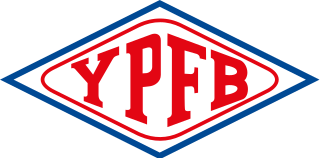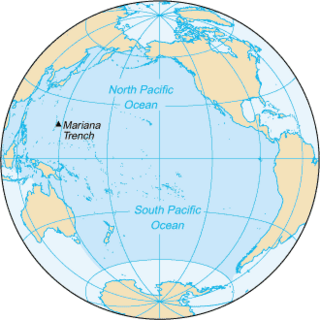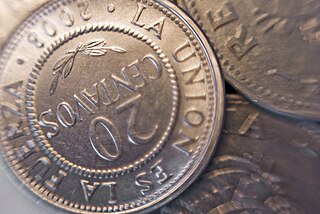
The economy of Bolivia is the 95th largest economy in the world in nominal terms and the 87th economy in terms of purchasing power parity. It is classified by the World Bank to be a lower middle income country. With a Human Development Index of 0.675, it is ranked 119th.

The Bolivian gas conflict was a social confrontation in Bolivia reaching its peak in 2003, centering on the exploitation of the country's vast natural gas reserves. The expression can be extended to refer to the general conflict in Bolivia over the exploitation of gas resources, thus including the 2005 protests and the election of Evo Morales as president. Before these protests, Bolivia had seen a series of similar earlier protests during the Cochabamba protests of 2000, which were against the privatization of the municipal water supply.

The Revolutionary Nationalist Movement is a Bolivian political party and the leading force behind the Bolivian National Revolution. It influenced much of the country's history since 1941.
The Argentine energy crisis was a natural gas supply shortage experienced by Argentina in 2004. After the recession triggered by the economic crisis and ending in 2002, Argentina's energy demands grew quickly as industry recovered, but extraction and transportation of natural gas, a cheap and relatively abundant fossil fuel, did not match the surge.

General elections were held in Bolivia on 18 December 2005. Evo Morales of the Movement for Socialism (MAS) party was elected President of Bolivia with 54% of the vote, the first time a candidate had received an absolute majority since the flawed 1978 elections. Morales was sworn in on 22 January 2006 for a five-year term. The MAS also won a majority of seats in the Chamber of Deputies and emerged as the largest party in the Senate.

The current Constitution of Bolivia came into effect on February 7, 2009 when it was promulgated by President Evo Morales. after being approved in a referendum with 90.24% participation. The referendum was held on January 25, 2009, and the constitution was approved by 61.43% of voters.
Our Brand Is Crisis is a 2005 American documentary film by Rachel Boynton on American political campaign marketing tactics by Greenberg Carville Shrum (GCS) in the 2002 Bolivian presidential election. The election saw Gonzalo Sánchez de Lozada elected President of Bolivia ahead of Evo Morales.
Venezuela has the largest conventional oil reserves and the second-largest natural gas reserves in the Western Hemisphere. In addition Venezuela has non-conventional oil deposits approximately equal to the world's reserves of conventional oil. Venezuela is also amongst world leaders in hydroelectric production, supplying a majority of the nation's electrical power through the process.

International relations between the Republic of Chile and the Plurinational State of Bolivia have been strained ever since independence in the early 19th century because of the Atacama border dispute. Relations soured even more after Bolivia lost its coast to Chile during the War of the Pacific and became a landlocked country. Chile and Bolivia have maintained only consular relations since 1978, when territorial negotiations failed and Bolivia decided to sever diplomatic relations with Chile. However, in spite of straining relationship, Chile and Bolivia still have economic treaties supporting tourism and cooperation; therefore, trading between two nations is not affected by the territorial dispute.
Hydrocarbons are the leading sector in Algeria’s mineral industry, which includes diverse but modest production of metals and industrial minerals. In 2006, helium production in Algeria accounted for about 13% of total world output. Hydrocarbons produced in Algeria accounted for about 2.9% of total world natural gas output and about 2.2% of total world crude oil output in 2006. Algeria held about 21% of total world identified resources of helium, 2.5% of total world natural gas reserves, and about 1% of total world crude oil reserves.

The foreign policy of the Evo Morales administration concerns the policy initiatives made towards other states by the current President of Bolivia, in difference to past, or future, Bolivian foreign policy. Morales' foreign policy can be roughly divided between that of the Americas and the rest of the world.

The domestic policy of the Evo Morales administration refers to the domestic policy initiatives of the current President of Bolivia, including past pre-presidential advocacies by Morales.
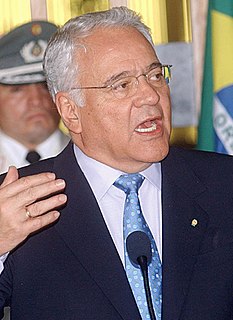
General elections were held in Bolivia on 30 June 2002. As no candidate for the presidency received over 50% of the vote, the National Congress was required to elect a President. Gonzalo Sánchez de Lozada was elected with 84 votes to the 43 received by Evo Morales.
The history of Bolivia since 1982 begins with the restorations of democracy after the rule of the military junta of 1982. Evo Morales has held the presidency since 2006. A new constitution was enacted in 2009. Bolivia's population has roughly doubled over this period, from 5 million in 1980 to 10 million as of 2012.

General elections were held in Bolivia on 1 June 1997. As no candidate for the presidency received over 50% of the vote, the National Congress was required to elect a President on 4 August. Hugo Banzer of Nationalist Democratic Action (ADN) was subsequently elected. Whilst the ADN emerged as the largest party in Congress, it failed to win a majority of seats, and formed a coalition government with the Revolutionary Left Movement, Conscience of Fatherland and the Civic Solidarity Union.
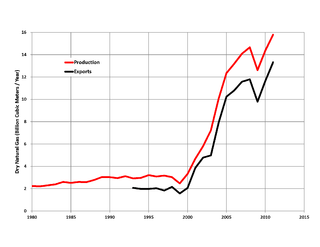
Natural gas in Bolivia is one of the nation's main energy sources and export products. Bolivia's proved natural gas reserves are estimated to be 24,800,000,000,000(ft³). Most of these reserves are located in the eastern region of the country. The major export pipelines in Bolivia transport the gas to Argentina and Brazil.

For the economic effects refer to Economy of Iran.







